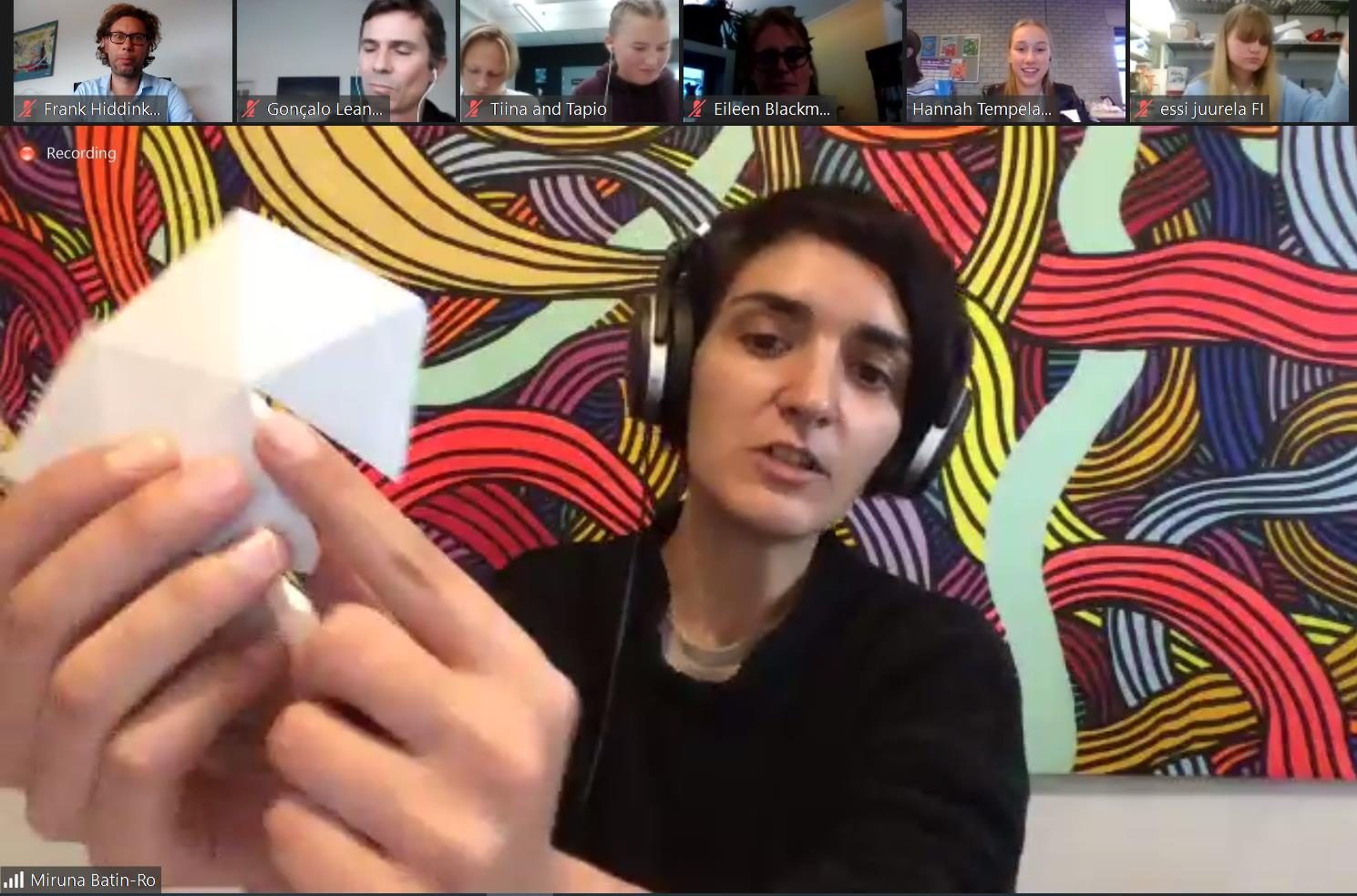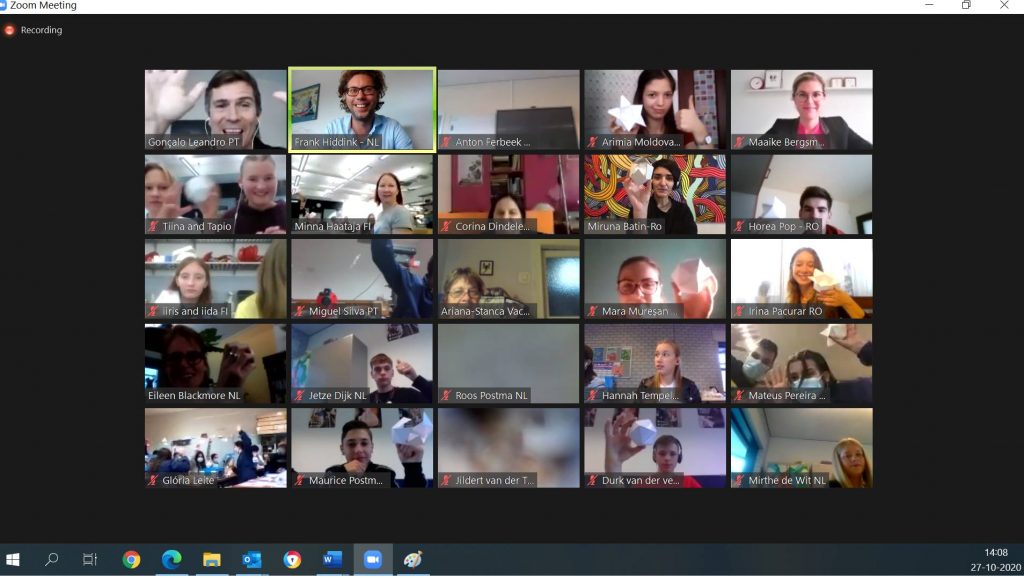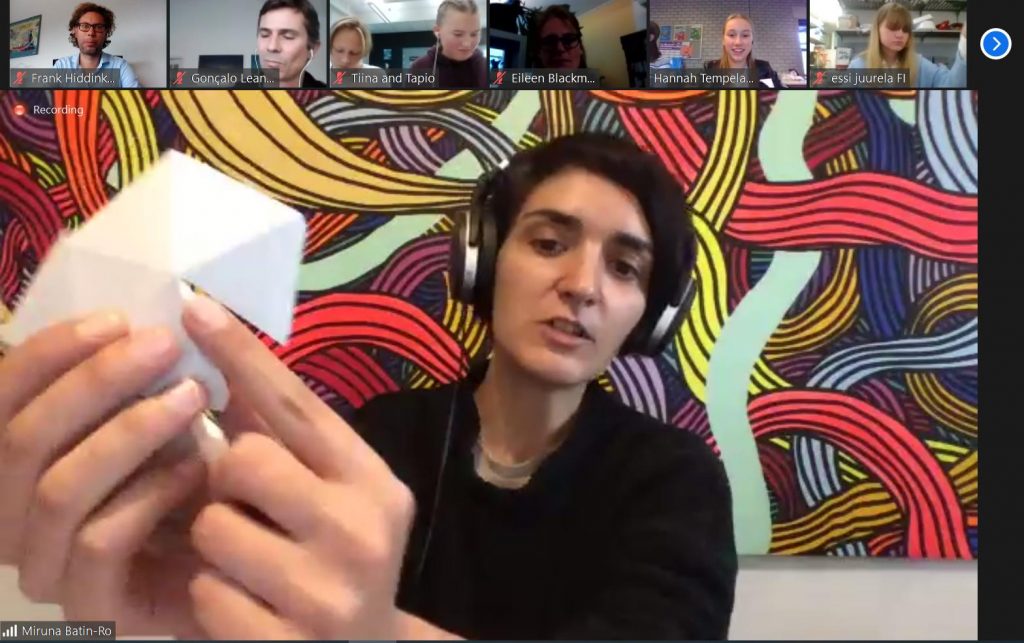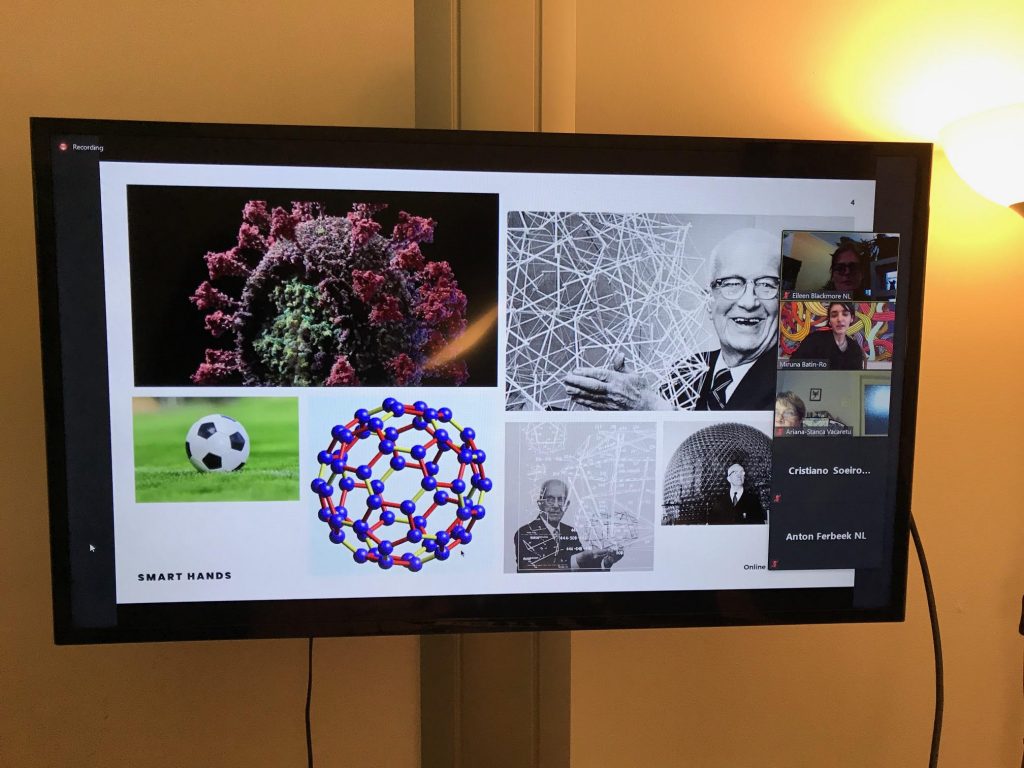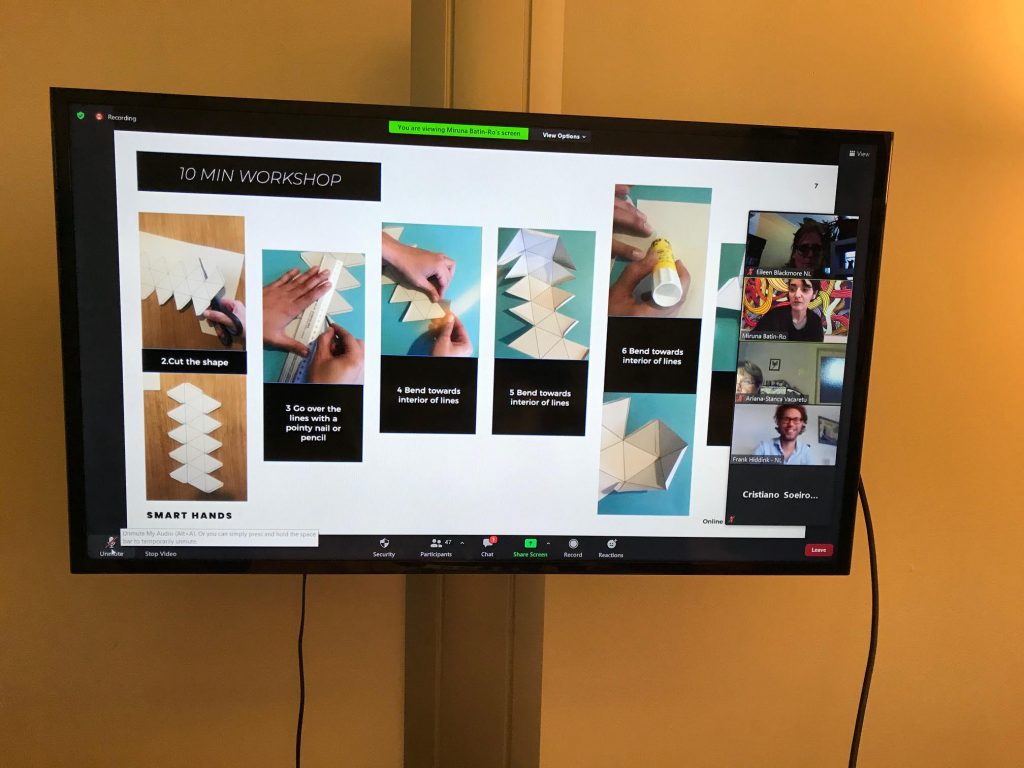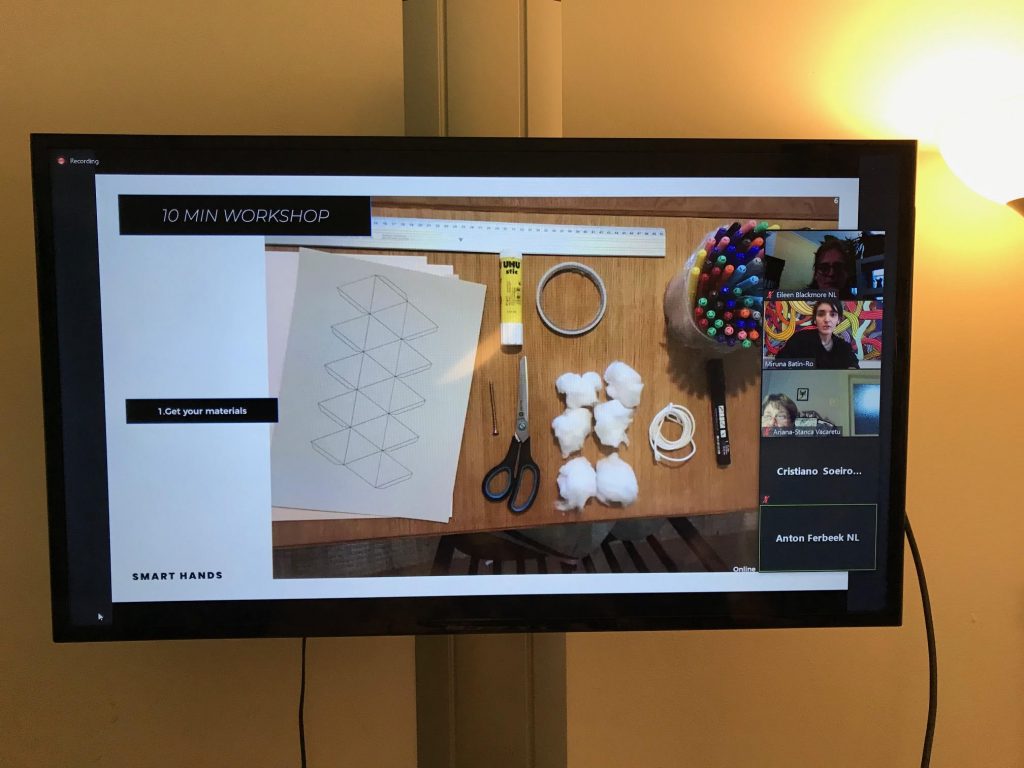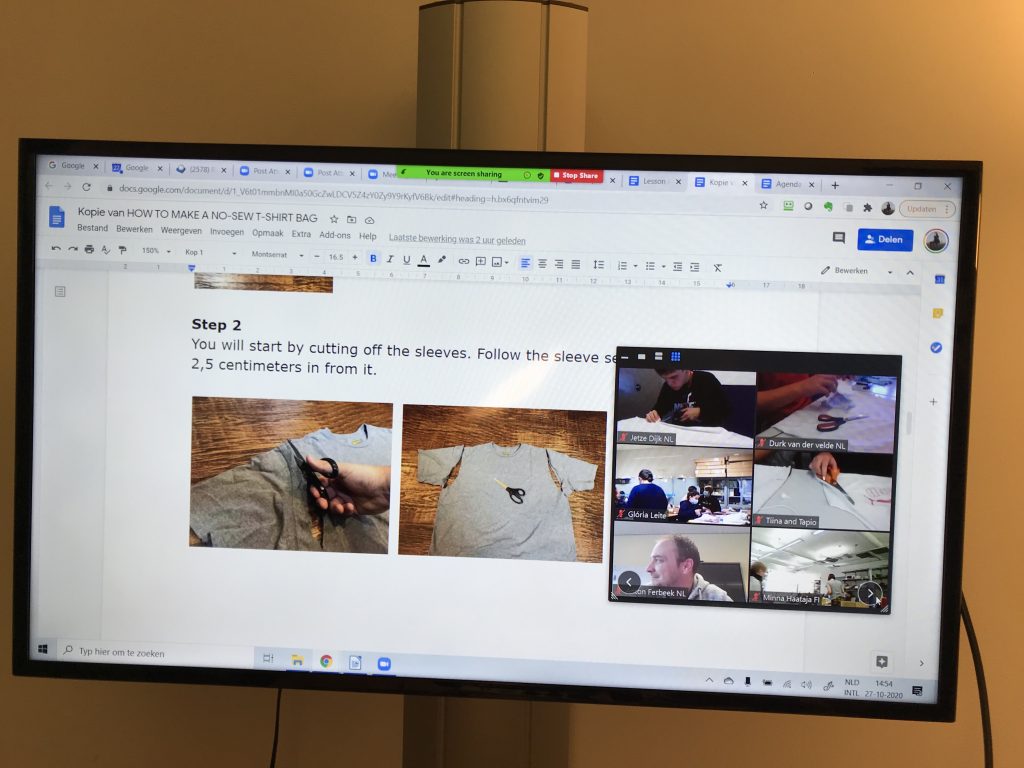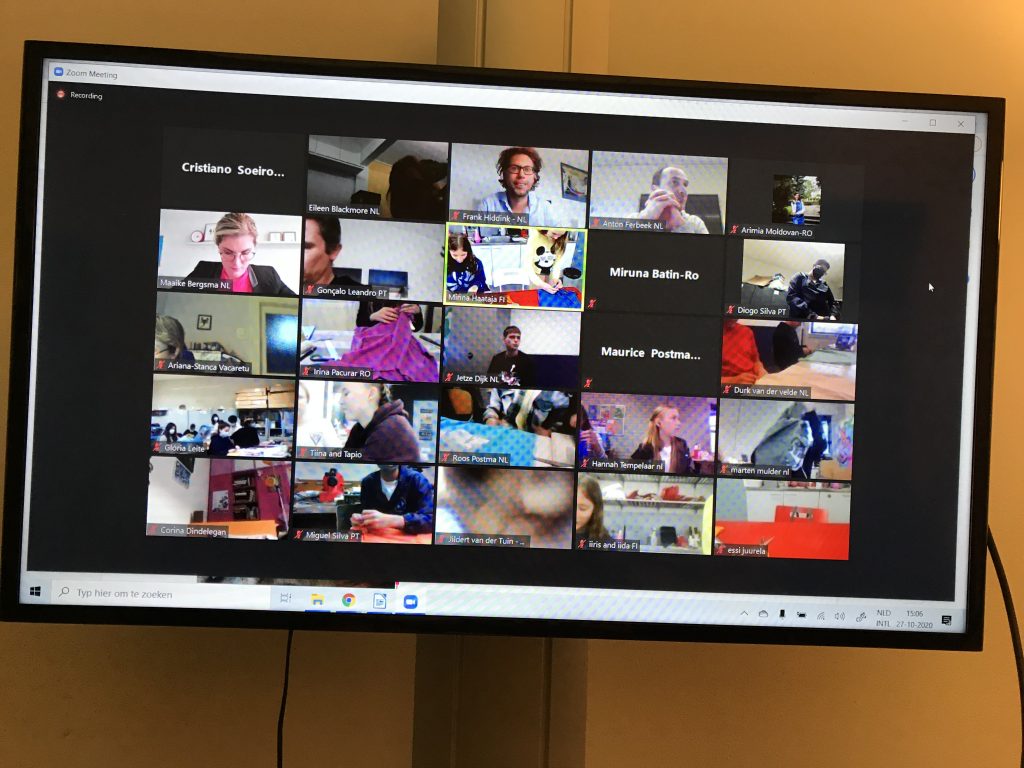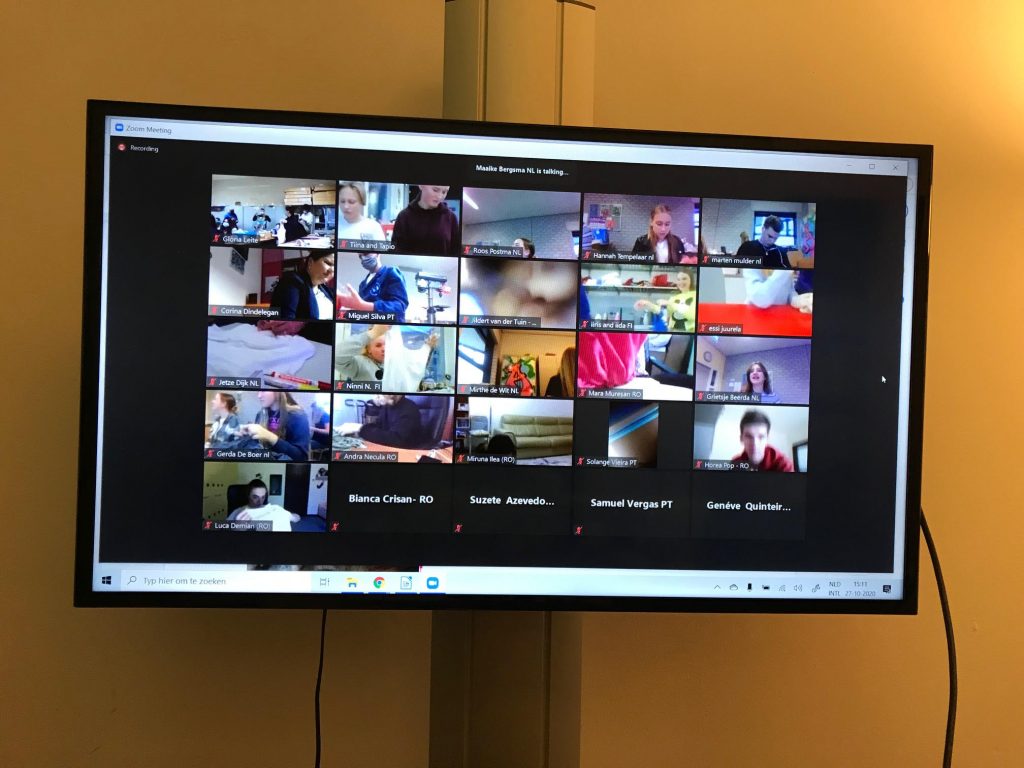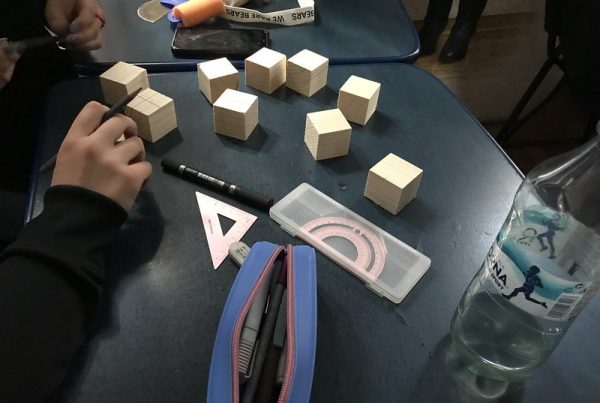In the European project SmartHands, we stimulate the inventiveness of students by making them think about current social issues, among other things. Due to covid-19, we as partners also have to think “out of the box” because the planned training week in Portugal cannot take place. To still be able to meet each other we have organized an online workshop program.
We were curious to see how it works with almost 50 participants, including teachers, expert partners and about 40 students from the Netherlands, Finland, Romania and Portugal. On an autumn Tuesday afternoon, we are sitting at our own computers, from a classroom, office, or home, but are all connected online!
Online program
We started with a short proposal round from the partners and of course some agreements for the use of Zoom. Then we get to know each other better in small groups in the break-out rooms. The students briefly talk about their projects at school and their interests. It works reasonably well, but a few students find it difficult to speak. After a few specific questions it works better and we manage to bridge the distance.
After this, the students were offered four workshops, each lasting about half an hour. A teacher or expert partner from each country had prepared something that has been shared with the students in advance. The workshops identify current themes (such as covid-19 and textile waste), address the ingenuity of the students and we ask them to use their hands and head smartly.
WORKSHOP 1 Architecture of a virus
Miruna Batin (creative director Scientifica) from Romania
Miruna first shows the students a video about the architecture of a virus. She then lets them make a “virus” themselves. They cut a shape from paper which they then work with a sharp object so that it is easy to fold. A spatial object is created that they can glue together.
The webcams on the computers allow us to keep a close eye on the progress. Diligent hands work hard to get it done in time. Durk from the Netherlands is ready after 15 minutes: “Nice to cut the shape and make the virus”. Tiina from Finland has already put a soft material around it.
WORKSHOP 2 Head and hands
teacher Gonçalo Leandra (Way of Arts) from Portugal
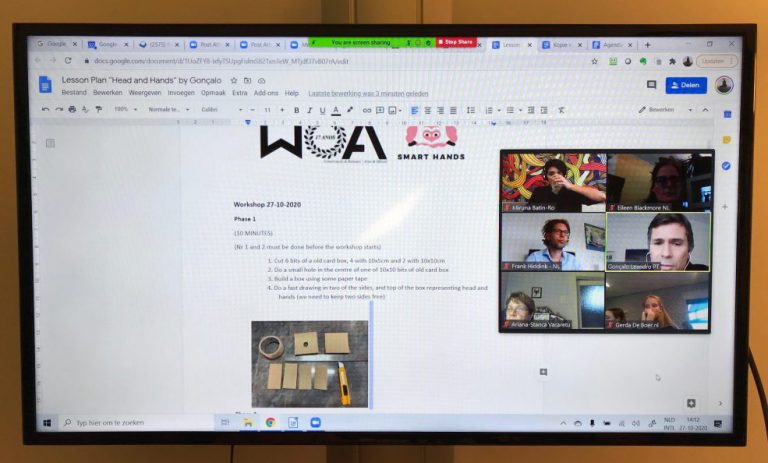
Gonçalo mentions that it is important to come together in this time with corona and is happy to work with the students today. He has prepared an assignment where they have to make a box in which they can put a message for the future.
Via the webcams we see all hands at work. The students make a box with a hole in one side. Gonçalo then asks them to put a message for the future in the box.
WORKSHOP 3 How to make a no-sew-thirt-bag
Eileen Blackmore (House of Design) and Maaike Bergsma (teacher OSG Singelland) from the Netherlands
Eileen and Maaike give an online workshop on the reuse of old textiles. After a short introduction about textile waste the students make a bag from an old T-shirt – without sewing. The step-by-step plan is shared on the screen so that the students can read along.
Soon we hear scissors cut everywhere. The students show their end result on the screen and so we see dozens of bags created, a nice colorful image.
“Now you never have to throw a t-shirt away again!” – Eileen emphasizes as she concludes.
WORKSHOP 4 Cultural treasures, photos of heritage
Artist and teacher Minna Haataja from Finland
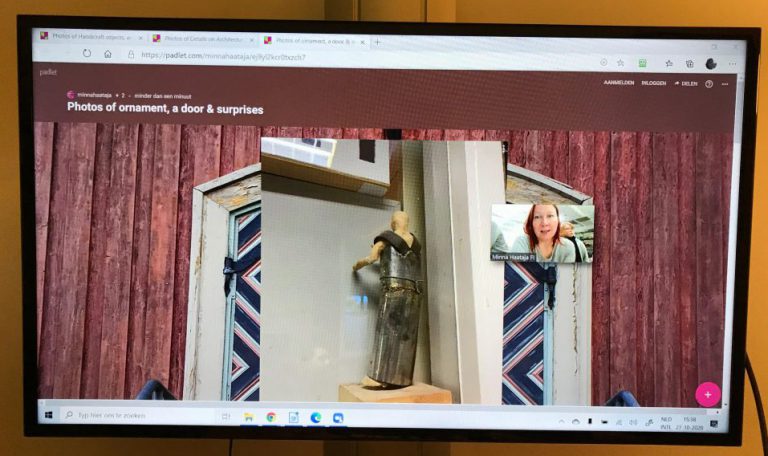
Minna shows images of projects with all kinds of design and art assignments, including 3D print and clay, which her students have done in previous years. She then asks the students to take photos of materials such as wood and metal, detailed photos of, for example, the floor and ceiling or ornaments in their environment. The images can be added to Padlet, an online platform.
In this way, the students see the environment of their European peers and hear the story behind it. You focus on your own environment and immediately see how it is with others. We notice that it works well.
Finally, we asked the students for reactions
Two Portuguese students responded: “Nice to see each other’s work.” – “Making the bag was funny.”
From the Netherlands, Durk says: “I liked taking pictures the most” and Roos: “Great way to get to know the students from other countries.”
Bianca from Romania: “The diversity of activities appealed to me. I liked making the virus the most myself. ”
Then Gonçalo shared a TikTok dance with us, to the music of “Keep your head strong”, beautifully fitting the theme!
We are very pleased with this first online training. The online exchange between the countries and students works.We managed to overcome the distance and connect with each other. Who knows, maybe we will see each other in real life in April when another exchange is planned in Portugal. For now we close with digital hugs and thumbs up!

